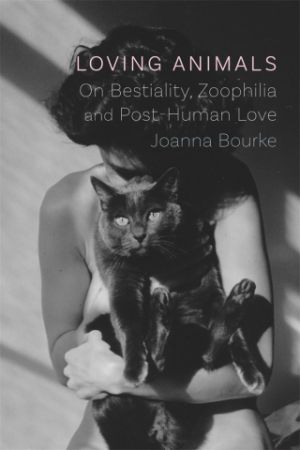Loving Animals: Difference between revisions
No edit summary |
No edit summary |
||
| Line 18: | Line 18: | ||
Loving Animals is a book by Gresham College historian Joanna Bourke, released in 2020. In it, she gives an overview of zoophilia and bestiality and our history with it. She presents each side in their own words, with as little interpretation as possible. | Loving Animals is a book by Gresham College historian Joanna Bourke, released in 2020. In it, she gives an overview of zoophilia and bestiality and our history with it. She presents each side in their own words, with as little interpretation as possible. | ||
In the final chapter, she delves into methods of | In the final chapter, she delves into methods of communicating with animals and nonverbal humans, and reminds everyone that we've historically denied sexuality to humans living with disability. She posits that, just as there's room to understand the ethics of allowing all adult humans to express their sexuality and love, we shouldn't lose sight of the possibility of the same for adult non-humans. With a focus on communication and love, there's a path forward to explore a kind of true companionship with animals while still denying abuse. | ||
Revision as of 03:48, 1 March 2021
| This article is a stub. You can help Zoophilia.wiki by expanding it. |
 Front cover of the book | |
| Author | Joanna Bourke, FBA |
|---|---|
| Country | Great Britain |
| Language | English |
| Subject | Zoophilia, Queer Theory |
| Genre | Research |
| Publisher | Reaktion Books LTD |
Publication date | 2020 |
| Pages | 191 |
| ISBN | 978-1-78914-310-2 |
| Website | http://www.bbk.ac.uk/history/our-staff/academic-staff/joanna/professor-joanna-bourke |
Loving Animals is a book by Gresham College historian Joanna Bourke, released in 2020. In it, she gives an overview of zoophilia and bestiality and our history with it. She presents each side in their own words, with as little interpretation as possible.
In the final chapter, she delves into methods of communicating with animals and nonverbal humans, and reminds everyone that we've historically denied sexuality to humans living with disability. She posits that, just as there's room to understand the ethics of allowing all adult humans to express their sexuality and love, we shouldn't lose sight of the possibility of the same for adult non-humans. With a focus on communication and love, there's a path forward to explore a kind of true companionship with animals while still denying abuse.